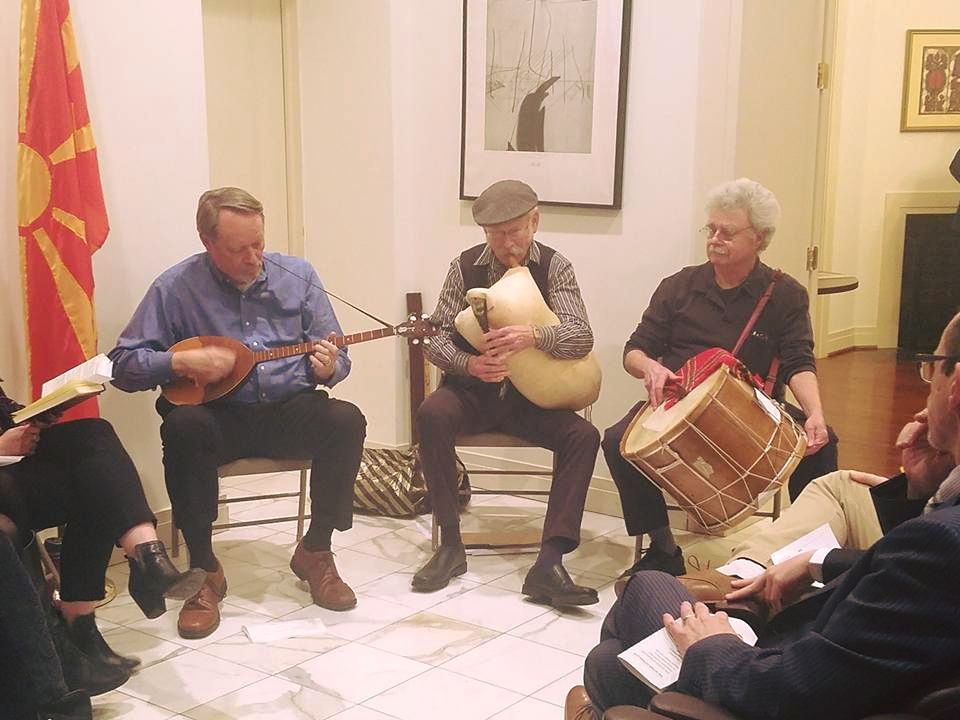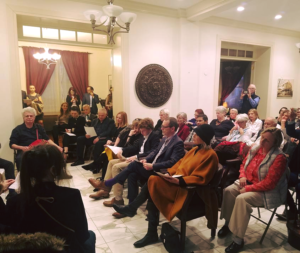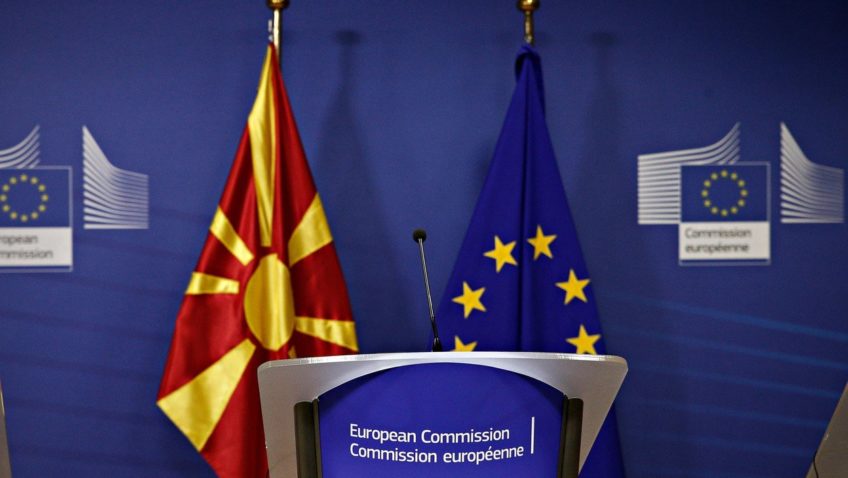Out of touch. Condescending. Uneducated. Speak broken Macedonian. These are only some of the stereotypes which many Macedonians hold for their diaspora. Like in many other countries, Macedonian emigrants are the ultimate “other”, as they have committed the ultimate sin. “They were born as one of us, and they chose to become someone else,” the common reasoning goes.
Of course, when you are forced to choose between joining a political party to get a job, and making your own (albeit often burdensome) way to a better-paid job abroad, it is hardly a choice. Yet, this is the kind of “choice” that Macedonians have been faced with for the better part of the past two decades since independence in 1991. Disillusionment peaked during the 11-year rule of the right-wing VMRO-DPMNE between 2006 and 2017, which left the country isolated and impoverished.
But what the diaspora usually finds even harder to swallow is the second part of the stereotype about them: when does one become someone else? Does it happen the minute you leave your country? Is it perhaps based on how often you go back? Or is it determined by how patriotic you are?
Mоst diaspora organizations say no to the first two questions, but a proud yes to the third. In fact, the central message at a recent protest by parts of the diaspora in Washington, D.C. against the good-faith efforts by the Macedonian government to resolve the long-standing name dispute with Greece was that the diaspora will never “give Macedonia away”. In the meantime, a similar series of protests took place in Skopje over the same issue and with the same inward-looking rhetoric. (The only difference was that, unlike their counterparts in the diaspora, this group was civilized enough not to burn pictures of Prime Minister Zoran Zaev.)
And just like that, two groups on both sides of the ocean entered a vigorous contest for the crown of “guardians of the identity” of one of Europe’s poorest states. It was a striking exercise in absurdity.
But just like not all Macedonians back home wrap themselves in the flag, the diaspora is not unanimous on the matter either. In 2017, a group of Macedonian emigrants in Europe, North America, and Australia founded the Forum for Democratic Macedonia. Its members express their love for Macedonia differently. Their aim is to substitute the superficial and often nationalistic patriotism of parts of the diaspora with advocacy for a prosperous Macedonia in all its ethnic and cultural diversity.
“We are bound together by our common roots, but more importantly by our common progressive thinking,” says the founding document of the organization. With its humanistic rather than particularistic foundations, the Forum aims to challenge virtually everything we thought we knew about the Macedonian (and arguably any other) diaspora.
The progressive outlook of the Forum is also reflected in its position on Macedonia’s name dispute with Greece. Despite the injustice of one country requesting another country to change its name as a precondition for joining international institutions, the Forum is adamant that the country needs to finally put this issue to bed and move forward.
“The resolution of the dispute will remove the biggest obstacle to Macedonia’s membership in the EU, which is in turn instrumental to Macedonia’s future development”, says a recent press release by the Forum. Todor Arsovski, member of the board of the Forum, argues that Macedonia needs to abandon its wishful thinking about the name dispute, which “resembles the behavior of a 7-year-old child, who, unhappy with the playing conditions, decides not to play altogether”.

An excellent preview of what the Forum aspires to represent as an organization was its recent event titled “The Colors of Macedonian Music”. Held at the Embassy of the Republic of Macedonia in Washington, D.C. on April 4, this event gathered a group of American musicians who have been performing traditional Macedonian music for decades. Most impressively, none of them have any relationship to Macedonia other than their love for the sound of Macedonian folklore.
The performance attracted an audience of over sixty people, who had the opportunity to sing along to some of the most beautiful Macedonian songs, such as “More sokol pie”, “Bitola moj roden grad” and “Zajdi, Zajdi”. It is also noteworthy that their repertoire included some Albanian traditional tunes, and that the audience also featured Macedonians of Albanian ethnicity – a kind of mixing rarely seen at diaspora gatherings.
“With their intimate passion for and knowledge of Macedonian folk music, these musicians are helping us rediscover our own cultural heritage”, said Aneta Georgievska-Shine, member of the board of the Forum. The aim of the event was best encapsulated in the following Facebook post:
“While some people try to protect the Macedonian identity with particularism, here is an alternative interpretation of identity. Identity can survive only when it creates something of value, when it wins people’s hearts and when it produces an inner sense of belonging to a community.”
 At the end of the day, the fight for a progressive diaspora – and for a progressive Macedonia – will not be won by Macedonia’s integration into international institutions. It might not even be won by its economic development. Ultimately, it will be won by ideas, and the Forum is ready to give its two cents.
At the end of the day, the fight for a progressive diaspora – and for a progressive Macedonia – will not be won by Macedonia’s integration into international institutions. It might not even be won by its economic development. Ultimately, it will be won by ideas, and the Forum is ready to give its two cents.
“The biggest problem in Macedonia today is that we preach hatred to our young people. We teach young Macedonians to hate their Albanian compatriots and vice versa. And then we teach them all to hate our neighboring countries together. It is time to take Macedonia out of the 19th century,” concludes Arsovski.
Disclosure: The author of this article is a member of the Forum for Democratic Macedonia.


Samo ke go repostiram komentarov od Facebook zosto sakam “Tose Arsovski” da go vidi.
А да, додека грчката дијаспора лобира ригорозно за нивните национални интереси во работи како проблемот со името нашите да бидат “прогресивни” и да им дадат да одат брз нас, така е?
Не, овој Тоше Арсовски е кретен, во проблемот со името очигледно е кој се однесува тврдоглаво и кој е погрешен, а не сме ние, а за тоа дека ние сме биле учени да ги мразиме нашите соседи додека они се 100% толерантни можеш само да видиш било кој интернет пост или дури аргумент во кафана кајшто станува збор за Македонија и има вмешано грци, албанци, дури и некои бугари и срби што не мразат од раѓање, како сакаш ние да реагираме?
Соочени со све тоа не сме само фер туку и пре фер, ова е Балкан и тука ке постојат прогресивци, дури и во Грција каде се мислат за европејци а не балканци нивните левичарски гомна како оној композиторот не мразат нас поради националистички приказни, Тоше Арсовски е кретен и ништо не знае и ако пушта некои народни песни додека грците и нивната дијаспора лобираат по сенати не помага ни нас ни на државата.